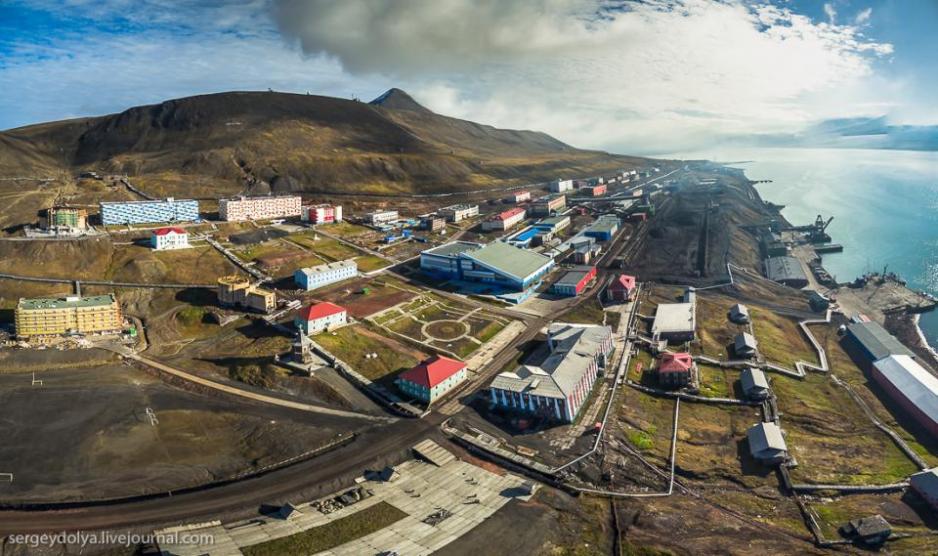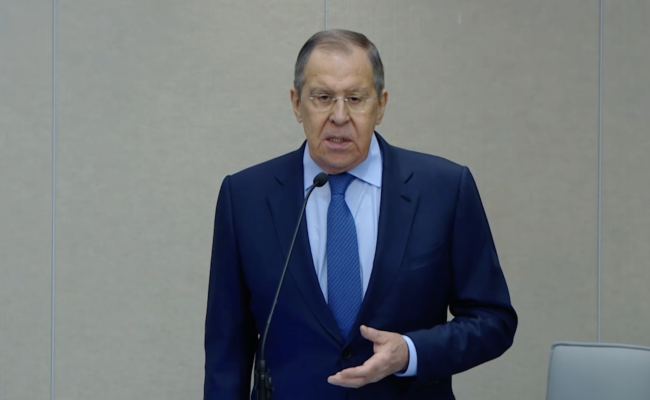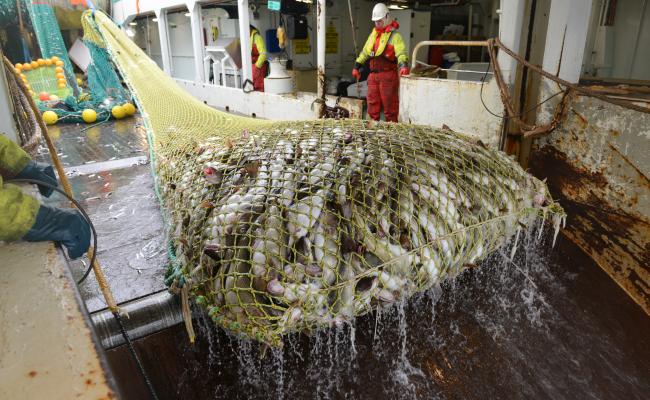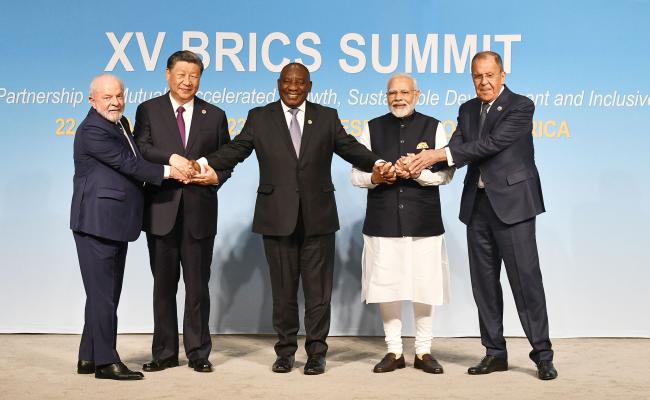Op-ed: Boundaries of the Ego vs Rational Boundaries in the Barents Sea

"Within the dynamic geopolitical landscape of the present day, Russian activities in Barentsburg and Pyramiden persist, extending beyond purely commercial endeavors," writes Eda Ayaydin, Teaching Fellow at the International Politics Department, University of London, Institute in Paris. (Archive photo of the Russian settlement Barentsburg: Sergey Dolya, CC BY-SA 3.0, Wikimedia)
This is an opinion piece written by an external contributor. The article expresses the writer's opinions. High North News is not responsible for the content in external links.
Following Monday's news from High North News regarding Lavrov's firm stance on maritime boundary agreements with Norway and the US, I penned this short op-ed.
Specifically, I focus on Norway-Russia relations and the current status of interactions in the region, drawing also upon my meetings with officials and bureaucrats from Norway.
The title of this op-ed was inspired by Freudian terminology, suggesting that the emergence of boundary issues in the Arctic within Russia's Duma is not due to rational motivations, such as Russian interests in the Arctic, but, rather, it suggests that they are emerging because of an ego's opposition to reality and the external world.
Heightened significance
In 2022, immediately after the onset of sanctions following the outbreak of the Russian-Ukranian war, the significance of Norway-Russia relations notably heightened, particularly in areas concerning Svalbard, Barents maritime boundaries, and fisheries.
As the securitization of the Arctic began to increase, the relations between Norway and Russia became more significant than ever. From my outsider perspective, I will highlight three critical fractions in the interactions between the two states.
Russian activities in Barentsburg and Pyramiden persist, extending beyond purely commercial endeavors.
First, in July 2022, the news highlighted logistical challenges encountered by Russian suppliers in Svalbard.
During an interview, an official from Norway's High North Department clarified that there were no issues with Russia in Svalbard, and the situation that arose in June was not a conflict; it was resolved calmly.
Following this logistics crisis, during which Russia accused Norway of obstructing food deliveries intended for Russian-populated settlements on the Svalbard archipelago, Vyacheslav Volodin, the State Duma Speaker, instructed the head of the chamber's international affairs committee to investigate the possibility of "denouncing" the 2010 treaty that established the maritime boundary with Norway.
Vladimir Putin also cited this treaty as an example of Arctic negotiations in 2017.
A senior Norwegian bureaucrat from the Ministry of Foreign Affairs mentioned during our meeting that they are accustomed to hearing complaints about this maritime agreement. Therefore, it appears that not only Lavrov but also his counterparts in Oslo do not see denouncing the Treaty as meaningful.
Also read (the text continues)
The third significant development since February 2022 is the decision to continue fisheries cooperation. It's noteworthy that the management regime established by the two states in the Barents region during the Cold War has persisted even in today's geopolitical conditions.
These developments have indeed played a significant role in consolidating relations between the two Arctic states.
Through my meetings, I've noted the recurring theme emphasizing the absence of war for over a thousand years, underscoring its importance. While this historical context does not guarantee immunity against future conflicts, it undoubtedly influences the shaping of relations.
The performance of this discourse, spanning a millennium, holds a notable place in Norwegian-Russian politics in the Arctic.
2023: Shift in Discourse?
Within the dynamic geopolitical landscape of the present day, Russian activities in Barentsburg and Pyramiden persist, extending beyond purely commercial endeavors.
Not only Lavrov but also his counterparts in Oslo do not see denouncing the Svalbard Treaty as meaningful.
In August 2023, Russian Bishop Iyakov of Naryan-Mar and Mezen installed and consecrated an Orthodox cross in Pyramiden, symbolizing a significant presence in the region.
This cross, towering at a height of 7 meters, is adorned with the bicolored black and orange ribbon of Saint George, a Russian symbol often linked with military prowess and nationalism.
Consequently, Oslo is aware of the necessity of engaging with Moscow, especially considering the nuanced historical relationship and neighborhood with Russia.
After all, there has recently been a slight change in discourse, or perhaps simply a louder expression of existing thoughts and discussions.
Solveig Rossebø – new Senior Arctic Official (SAO) for Norway – stated during the Arctic Frontiers in February 2024 in Tromsø that as the chair of the Arctic Council, the Norwegian side has discussions with all the members of the Council, including Russia, and added they have conversations with Russian colleagues.
Also read (the text continues):
According to Rossebø, the Council members are referred to as the Arctic 8, not the Arctic 7. Following this, Researcher Svein Vigeland Rottem also affirmed firmly that the Council will die if Russia leaves it.
Additionally, David Balton – Biden's Arctic Advisor – indicated that the Arctic Council is struggling and the probability of some exceptions, like cooperating on the international space station and some emergency matters, as well as the border area.
Diplomatic channels at work
Moscow likely notices all these shifts earlier than I do. Subsequently, the news occurred that Russia would stop paying the Arctic Council fee.
Speculations arose about withdrawing from UNCLOS, and recently, Lavrov reacted against the Duma's inquiry on denouncing the maritime boundary agreement.
Therefore, these recurring discourses are especially noted by Norway, indicating a heightened awareness of the situation.
However, this awareness is not taken for granted, as in the discourse spanning a thousand years. Thus, Russia seems inclined to rejoin cooperation efforts. Likely, diplomatic channels are currently at work to facilitate this process somehow.
Otherwise, in an improbable scenario, but one worth considering, if Russia were to leave the Arctic Council and UNCLOS, the Arctic could become an exception, as Russia would start acting against the rules-based order within the Arctic region.
Hopefully not.








